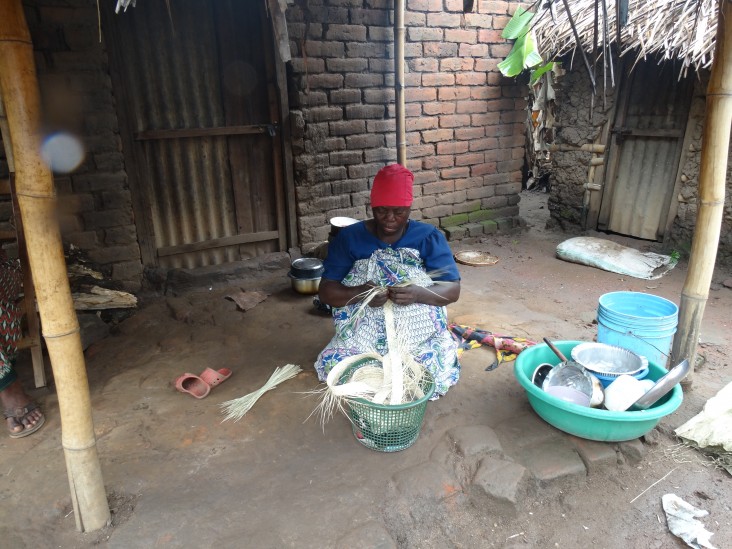
August 2016—Asha Goa was born with a severe disability that affected her ability to work, but she has created a successful business and has carved a path to financial independence.
Raised in Tanzania’s Kilombero district, Goa had only one source of income—the 25 cents she received weekly from family and friends. That changed in 2014, when Goa joined a savings and internal lending community, or SILC group. The group is supported by USAID under the U.S. Government’s Feed the Future initiative.
USAID's NAFAKA (or “grain” in Swahili) project, which improves agricultural value chains, has established more than 700 SILC groups in Tanzania with a total of over 14,500 members, 70 percent of whom are women. These groups, usually formed with 12 to 25 community members, are self-managed. For poor households that lack access to basic financial services, the groups offer safe and easy ways to save money. The groups also give members easy access to small, flexible loans or emergency grants.
After Goa joined the SILC group, she began to save a bit less than a dollar each month, which allowed her to take out a loan worth $18.24 with a minimal interest rate. With the loan, Goa purchased supplies to cultivate a half-acre rice paddy. She invested the remaining money in a small business she ran selling ripe bananas.
Goa harvested 10 bags of rice, with a market value of more than $400. This tremendous return on her investment enabled her to quickly repay the loan, save even more money with the SILC group, and further invest in her business. She also earned enough money to build a small home.
In Tanzania, Feed the Future-supported SILC groups enabled participants to save a total of more than $600,000 and to receive loans of nearly $1.4 million from 2012 to 2015 for things like household expenses, agricultural production, or even microbusinesses.
Best of all, women who participate in the SILC program show increased self-confidence in addition to greater financial independence. Program support includes training on financial literacy, good agricultural practices, the importance of equitable gender roles, and basic human rights.
Goa credits the program with empowering her community and creating a path to financial security. “Thanks to NAFAKA, I can manage my life without depending on others,” she says.
The five-year NAFAKA program works to improve smallholder farmer productivity and profitability in Tanzania’s rice and maize value chains. Over the long term, the program aims to sustainably reduce poverty and food insecurity in Tanzania and to create greater opportunity for women and youth in particular.
LINKS







Comment
Make a general inquiry or suggest an improvement.